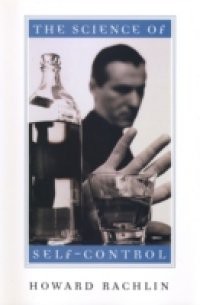This book proposes a new science of self-control based on the principles of behavioral psychology and economics. Claiming that insight and self-knowledge are insufficient for controlling one's behavior, Howard Rachlin argues that the only way to achieve such control--and ultimately happiness--is through the development of harmonious patterns of behavior. Most personal problems with self-control arise because people have difficulty delaying immediate gratification for a better future reward. To avoid those problems, the author presents a strategy of "soft commitment," consisting of the development of valuable patterns of behavior that bridge over individual temptations.

